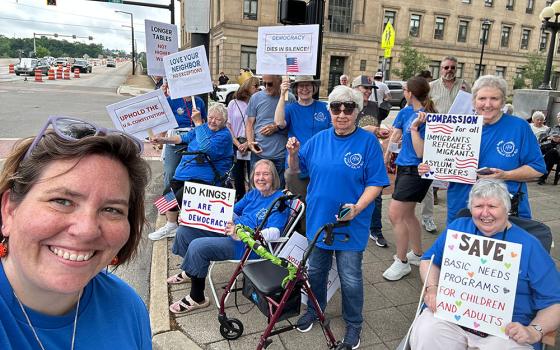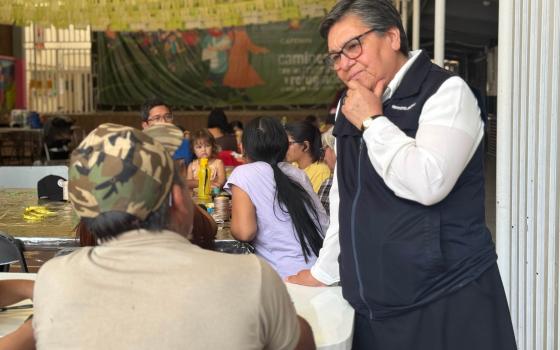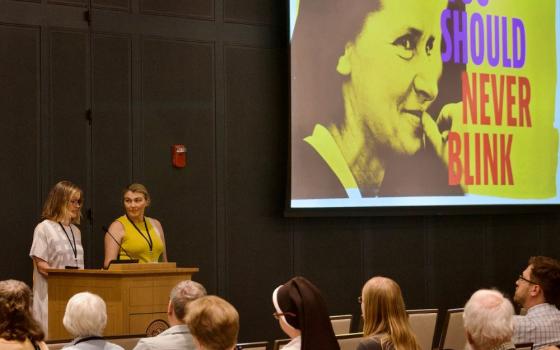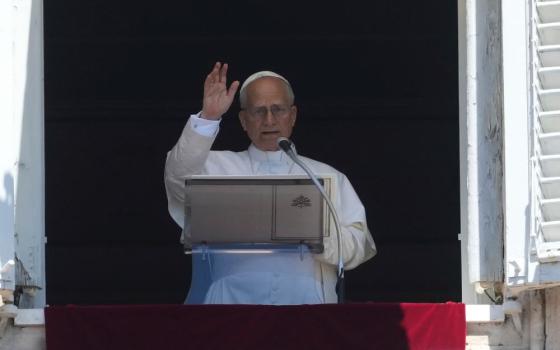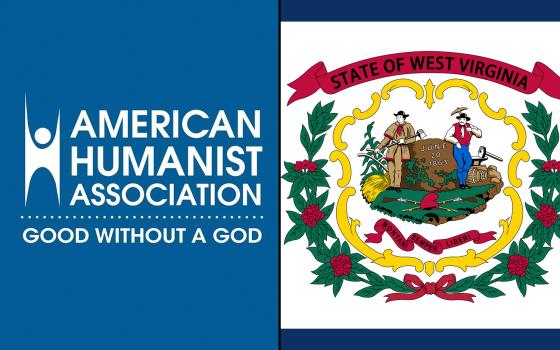A woman holds a rosary during a March 21, 2010, Mass at a church in Armagh, Northern Ireland. (CNS/Reuters/Cathal McNaughton)
A woman holds a rosary during a March 21, 2010, Mass at a church in Armagh, Northern Ireland. (CNS/Reuters/Cathal McNaughton)
Government officials in Northern Ireland and representatives of religious orders who managed state institutions apologized to survivors of abuse at those institutes.
The March 11 apologies follow a 2017 inquiry that examined the abuse of hundreds of children at church and state-run institutions from 1922 to 1995.
The move was welcomed by some, but other abuse survivors said they doubted the sincerity of church representatives.
Speaking to survivors gathered at Parliament Buildings in Belfast, Education Minister Michelle McIlveen said: "We are sorry that the state did not protect you." She said there is no "excuse or defense" for what happened.
"Today we, as representatives of the state, say that we are sorry," she told the chamber, which included members of the cross-community legislative assembly. About 80 survivors were present in the assembly chamber, while others were given private rooms in Parliament Buildings to watch the apology.
A minute's silence was held in the chamber, followed by a brief applause, before the statements began.
As representatives of institutions that ran facilities where abuse took place apologized, some survivors left the chambers. Four of those apologies were from Catholic religious orders.
Br. Francis Manning of the De La Salle Brothers said his congregation's "actions and sometimes inaction caused pain and hurt and, for our part, we wish to say we are sorry and offer our sincere apology."
For the Sisters of Nazareth, Sr. Cornelia Walsh offered what she described as a "heartfelt apology" and acknowledged there was "systemic physical abuse and that bullying was prevalent."
Sr. Uainin Clarke, representing Sisters of St. Louis, apologized for the "harshness and a lack of love and understanding" experienced by children and teenagers in their care.
Sr. Cait O'Leary of the Good Shepherd Sisters said "mistakes were made" in the care provided to girls and young women, and they did not receive "appropriate, long-term, child-centered care."
Margaret McGuckin, from Survivors and Victims of Institutional Abuse, said it was a "joyous day" and praised survivors for not giving up to reach this point.
"For so many the word 'sorry' will release people from carrying that shame," she told reporters.
Advertisement
Fiona Ryan, commissioner for Victims of Institutional Childhood Abuse, paid tribute to the "courage of all survivors."
"The fact that the inquiry happened is due to the victims and survivors themselves, who fought to be seen and heard by an officialdom that was largely blind and deaf to the abuse they had suffered, to their anger and to their ongoing pain," she said.
Jon McCourt from the group Survivors North West said the politicians' words were "touching." However, he said the church representatives spoke "without emotion."
McCourt said he does not believe religious leaders atoned for their actions and called for religious organizations to make a "significant contribution" to the survivors' redress scheme.
While Northern Ireland's power-sharing institutions were suspended in 2019 due to a political impasse, the British government passed legislation to allow the establishment of a redress board for payments. Its late chairman, Sir Anthony Hart, had recommended compensation, an apology and a permanent memorial to be erected in Belfast. An agreement has still to be reached on the nature of the monument.
Archbishop Eamon Martin of Armagh, Northern Ireland, president of the Irish bishops' conference, described the event as "an opportunity for everyone, in church and society, to express our sincere admiration for all survivors of institutional abuse who have uncovered the enormity of harshness and brutality that they experienced."
"The courage, perseverance and determination of survivors has helped bring to light the truth about what happened in the past and ensure that lessons are learned, so that these awful things are prevented from happening again," he said.
"On behalf of the Catholic Church in Ireland, I repeat today my unreserved apology to all those who suffered from their horrific experience in church-run institutions, and to their loved ones. Today is a day of mixed emotions for them. Their reactions to today's apologies must be heard and respected. Words are not enough and will never undo the harm that has been caused," he said.
He added that it was "totally understandable that those abused may find it hard to forgive or be reconciled with the church. That is why we must do everything we can to demonstrate that we are serious about making reparation for the sins and crimes of the past."
